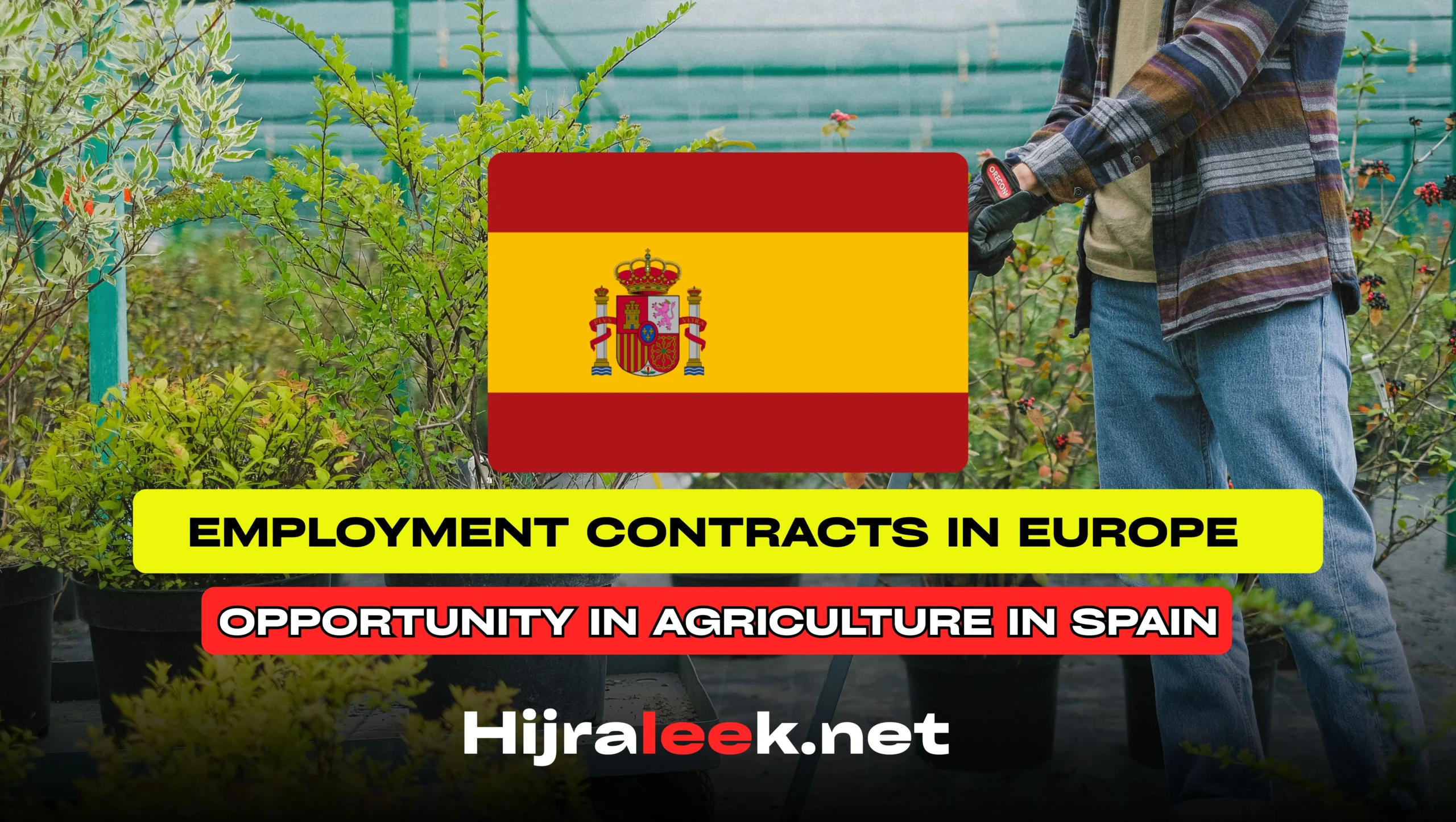The agricultural sector in Europe stands as a cornerstone of economic stability and innovation, particularly in Spain, where it contributes over €50 billion annually to the GDP and employs more than 700,000 people. With a Mediterranean climate ideal for high-value crops like olives, citrus fruits, grapes, and vegetables, Spain’s agriculture is not just a traditional industry but a burgeoning business opportunity for investors, entrepreneurs, and foreign workers. Central to this ecosystem are employment contracts in Europe, which provide the legal framework for hiring seasonal and permanent labor, ensuring compliance with EU labor directives while fostering growth. This article explores how well-structured employment contracts can unlock profitable ventures in Spanish agriculture, drawing on 2025 trends such as regenerative farming, EU subsidies, and visa programs for non-EU workers. Platforms like Hijraleek facilitate connections between employers and international talent, making it easier to build a successful agribusiness.
The Role of Employment Contracts in European Agriculture
Employment contracts in Europe are governed by the EU’s Posted Workers Directive and national laws, emphasizing fair wages, working conditions, and social security. In agriculture, these contracts are pivotal for seasonal hiring, where 70% of Spain’s farm labor is temporary due to harvest cycles. A standard contract must include details like duration, salary (minimum €1,134/month in 2025), hours (up to 40/week), and termination clauses, as mandated by Spain’s Workers’ Statute. For non-EU workers, contracts tie into the Seasonal Work Visa, requiring employer sponsorship and proof of no local labor availability via a labor market test.
These agreements mitigate risks like disputes or exploitation, while enabling businesses to scale. In Spain, where agriculture employs 4% of the workforce, robust contracts attract global talent, boosting productivity. For instance, the 2025 Seasonal Work Visa allows up to 9 months of employment, with contracts often including housing and transport, turning labor into a competitive edge.
Spain’s Agricultural Sector: A Thriving Business Landscape
Spain’s agriculture is Europe’s largest by area (25 million hectares) and a global exporter of olive oil (€4 billion in 2024) and wine. In 2025, the sector is projected to grow 3.2% year-on-year, driven by regenerative practices and EU funding (€8.9 billion from the Common Agricultural Policy). Key opportunities include:
- Regenerative Agriculture: Valued at €948.69 million by 2029, focusing on soil health and climate mitigation. Startups like BrioAgro use IoT for precision farming, offering €800–€1,500/month contracts for technicians.
- AgriTech Ventures: Companies like Agricolum and FSAGROTECHNOLOGIES seek developers and field workers, with salaries €2,500–€3,500/month. The sector’s digitalization push creates roles in GPS monitoring and big data.
- Organic and Export-Oriented Farms: Demand for organic produce rose 15% in 2024; businesses in Andalusia and Valencia hire via seasonal contracts, paying €1,200–€1,800/month for harvesters.
These trends position Spanish agriculture as a low-barrier entry for businesses, with EU subsidies covering up to 40% of startup costs for young farmers.
Navigating Employment Contracts for Agricultural Workers in Spain
To leverage agriculture as a business opportunity, mastering employment contracts is essential. Spain’s contracts fall into two main types for agriculture:
Fixed-Term Contracts for Seasonal Work
- Duration: 3–9 months, aligned with harvests (e.g., March–June for fruits, October–December for olives).
- Key Clauses: Job description, salary (€800–€1,500/month), overtime (+25%), and return commitment post-contract. Must comply with the Seasonal Work Visa, requiring a labor market test.
- Business Benefit: Allows scaling during peaks without long-term commitments; 2025 visa quotas target 10,000+ agricultural slots.
Indefinite Contracts for Permanent Roles
- Duration: Ongoing, for supervisors or technicians.
- Key Clauses: Probation (3 months), notice periods (15–30 days), and social security contributions. Minimum wage €1,134/month, plus bonuses for productivity.
- Business Benefit: Builds stable teams; eligible for EU Blue Card for high-skilled hires (salary >€40,000/year).
Employers must register contracts with the Social Security Treasury within 10 days. For non-EU workers, include visa sponsorship details to ensure compliance.
Steps to Start a Successful Agricultural Business in Spain
Turning agriculture into a profitable venture requires strategic planning. Here’s a roadmap:
- Market Research: Identify niches like organic olives in Andalusia (export value €2.5 billion). Use data from the Ministry of Agriculture to assess demand.
- Business Setup: Register as a sole trader (€100–€500) or SL company (€3,000 capital). Apply for EU subsidies via the Common Agricultural Policy.
- Hiring via Contracts: Post jobs on EURES or Hijraleek. Draft contracts with legal templates from the Ministry of Labor.
- Visa Sponsorship: For non-EU talent, sponsor Seasonal Work Visas (€90 fee); process takes 30–60 days.
- Operations: Invest in AgriTech (€10,000–€50,000 startup costs) for 20% yield boosts.
Success stories: Agricolum, a Valencia-based AgriTech firm, scaled to €1M revenue by hiring seasonal workers via fixed-term contracts, combining GPS tech with olive farming.
Challenges and Solutions in Spanish Agricultural Employment
| Challenge | Impact | Solution via Contracts/Business Strategies |
|---|---|---|
| Labor Shortages | 50,000 unfilled seasonal jobs | Use Seasonal Visa quotas; partner with agencies for bulk hiring. |
| Compliance with EU Laws | Fines up to €187,515 | Include audit clauses in contracts; train HR on Workers’ Statute. |
| Initial Investment | €20,000–€100,000 for farms | Access €8.9B EU funds; opt for co-ops to share costs. |
| Visa Processing Delays | 30–60 days | Apply early (January 2025); use digital tools for LMIA. |
Overcoming these ensures long-term viability, with regenerative agribusinesses seeing 15–20% ROI in 2025.
Conclusion
Employment contracts in Europe serve as the backbone for turning Spanish agriculture into a lucrative business opportunity, blending legal security with growth potential. With 2025’s expanded Seasonal Work Visa quotas and EU support for AgriTech, now is the time to invest or hire. Start by exploring roles or partnerships on Hijraleek and consulting the Ministry of Agriculture. Whether launching a regenerative farm or scaling exports, Spain’s ag sector promises profitability and impact—seize it!




















